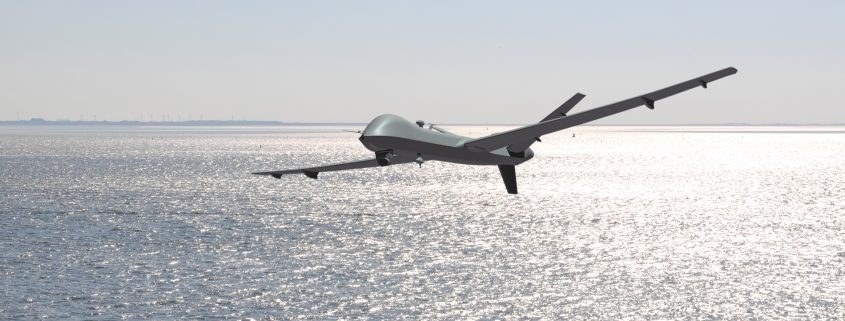Agreement Supports RPA Operational Approval for Flights in European Airspace
FARNBOROUGH INTERNATIONAL AIR SHOW — 12 July 2016 — General Atomics Aeronautical Systems, Inc. (GA ASI), a leading manufacturer of Remotely Piloted Aircraft (RPA) systems, radars, and electro-optic and related mission systems solutions, and the NLR-Netherlands Aerospace Centre today announced that they have executed an agreement to support expanded operational approval for GA-ASI RPA to fly in non-segregated European airspace.
“NLR’s tremendous airspace and air traffic control modeling and simulation capabilities allow us to test and validate civil airspace integration concepts for Medium-altitude Long-endurance [MALE] Unmanned Aircraft Systems [UAS],” said Linden Blue, CEO, GA-ASI. “NLR’s contribution to Predator B’s integrated ‘Detect and Avoid’ system helps further international acceptance of MALE UAS flight in civil airspace worldwide.”
NLR is one of the world’s leading experts on the global Air Traffic Management (ATM) system, with particular experience in Europe. GA-ASI will continue to leverage NLR’s full air traffic control simulation facility and more than 15 years of experience in RPA systems to help solve the critical questions surrounding the safe and efficient integration of RPA into non-segregated airspace.
“It’s a great opportunity for NLR to work together with GA-ASI on extending the existing European regulations on RPA usage in civilian airspace,” said Michel Peters, CEO, NLR. “The combination of GA-ASI’s extensive RPA knowledge and our certification and ATM knowledge will be a guarantee for a successful project.”
While Predator B is currently operational in segregated airspace in Europe, this collaboration is intended to expand operations into non-segregated airspace.
Starting in 2012, GA-ASI embarked on a company-funded project to produce a STANAG 4671-complaint configuration of the Predator B MALE UAS. This NATO standard defines a basis for UAS airworthiness certification which is compatible with civil airspace operations in the member countries. First flight of the “certifiable” Predator B configuration will occur in 2016.


